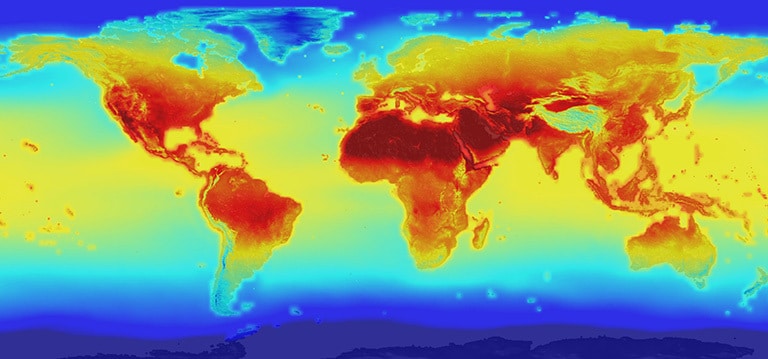IBM and NASA are collaborating for initiating improved climate change research. It was announced on February 1, that IBM is going to work together with NASA’s Marshall Space Flight Center to use artificial intelligence for climate change research in an effort to greatly improve research analysis of these large datasets. The aim is to make the research process simpler and overall save time by enhancing project efficiency.
IBM is working with NASA’s Interagency Implementation and Advanced Concepts Team (IMPACT) . IMPACT is a component of NASA’s Earth Science Data Systems Program and it is responsible for expanding the use of NASA Earth observing data through innovation, partnerships, and technology.
Collaboration for improving climate change research
The research will use IBM’s AI foundation model technology and NASA’s Earth and geospatial science data, specifically NASA’s Earth-observing satellite data. The just announced collaboration is looking at largely simplifying the research methods for analyzing and gaining valuable insights from large datasets. Foundation models are types of AI models which can be used for varied tasks and has the ability to apply information about one situation to another.
This partnership is looking at the initiation of several strategic projects. For example one project will train an IBM geospatial intelligence foundation model on NASA’s Harmonized Landsat Sentinel-2 dataset. Yet another project is expected to be a large language model based on Earth science literature. These project models are going to be open and available to the entire science community. This is indeed a wonderful news for the widespread stakeholders.
This collaboration is part of NASA’s Open-Source Science Initiative which outlines its commitment to build an inclusive and collaborative open science community over the coming years.
NASA’s Global Climate Change Studies
NASA is a well known global leader contributing to studies on Earth’s changing climate with its space observations of the Earth which are steadily helping everyone recognize how the planet’s interconnected systems interact.
Global warming is the most significant impact of climate change effects. Recently on January 12 at the beginning of the year NASA announced findings of its study which observed that 2022 was one of the hottest years in records till date with soaring temperatures bringing in heat waves in several affected areas. This report affirmed that the warming reality is very much here and needs to be taken into serious consideration.
Also Read: NASA and NOAA Confirm 2022 as One of the Hottest Years in Records
The past year 2022 was ranked the fifth hottest year in records by NASA where global temperatures were 1.6 degrees Fahrenheit above the average for NASA’s baseline period (1951-1980), according to the scientists from NASA’s Goddard Institute for Space Studies (GISS) in New York.
“This warming trend is alarming,” said NASA Administrator Bill Nelson at the official release of this study. He further added on that “our warming climate is already making a mark: Forest fires are intensifying; hurricanes are getting stronger; droughts are wreaking havoc and sea levels are rising. NASA is deepening our commitment to do our part in addressing climate change. Our Earth System Observatory will provide state-of-the-art data to support our climate modeling, analysis and predictions to help humanity confront our planet’s changing climate.”
Unfortunately human actions themselves are undoubtedly defining these abnormal temperature conditions in spite of such widely proclaimed recognitions of this challenge and also humans themselves being victims of the disasters unfolding as a consequence.
Significance of Climate Change research
Climate change research aims to understand global environmental change and its impact on society. Successful adaptation and mitigation efforts certainly call for unprecedented collaborations that unite several disciplines and is able to quickly address evolving climate issues. To achieve this aim, climate change research practices need updating.
Furthermore, the level of public interest and policy engagement on climate change issues relies on fast communication of relevant research findings, with the result that the societal impact of climate change studies will differ according to their public availability and exposure.
Announcements of collaborations like the one announced just now between IBM and NASA which aim at open science (OS) principles, can greatly advance climate change research and accelerate efforts to mitigate impacts; especially for highly vulnerable developing regions of the world where research capacity is limited. This collaboration is certainly poised to make extremely valuable contributions in this realm of great global concern.








